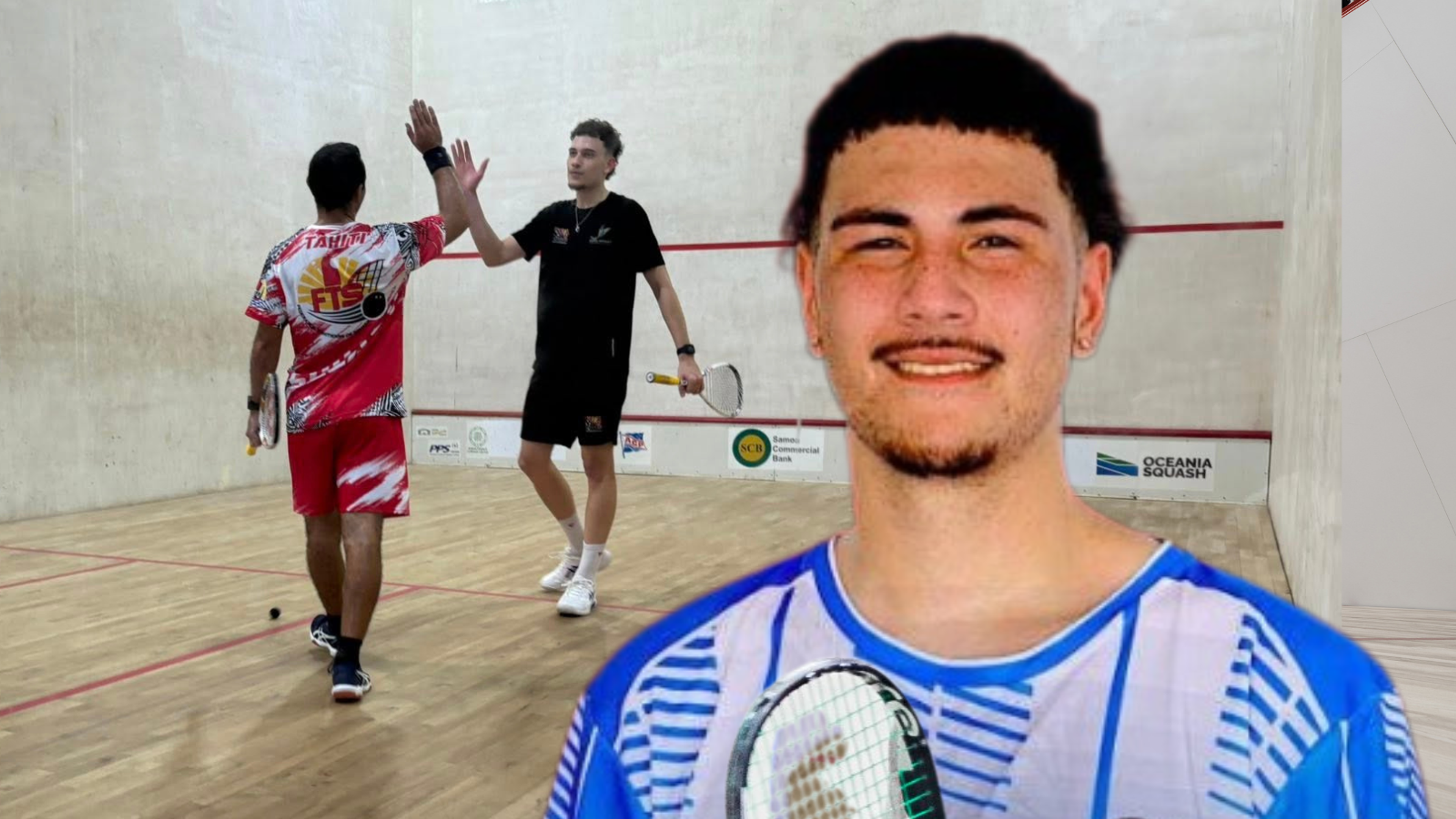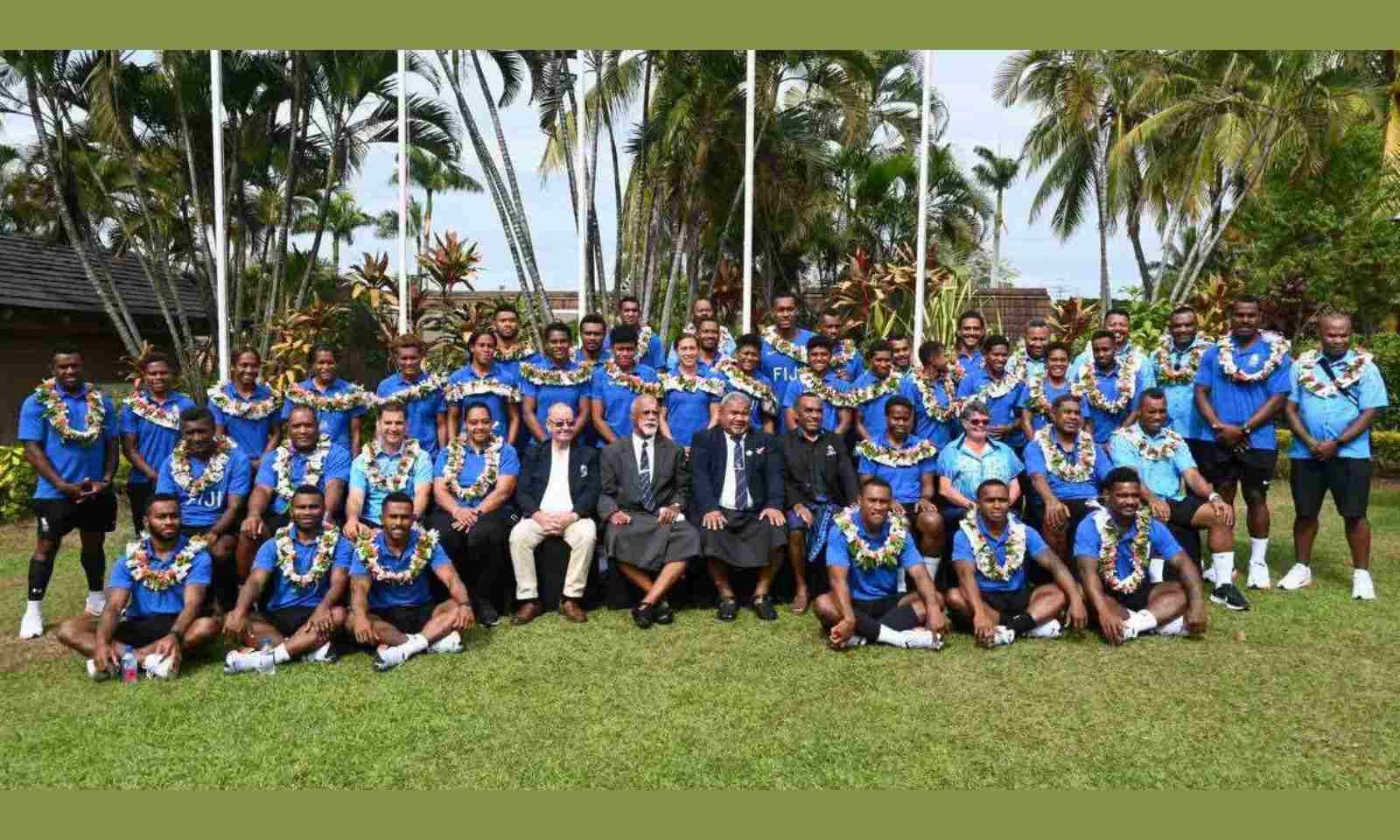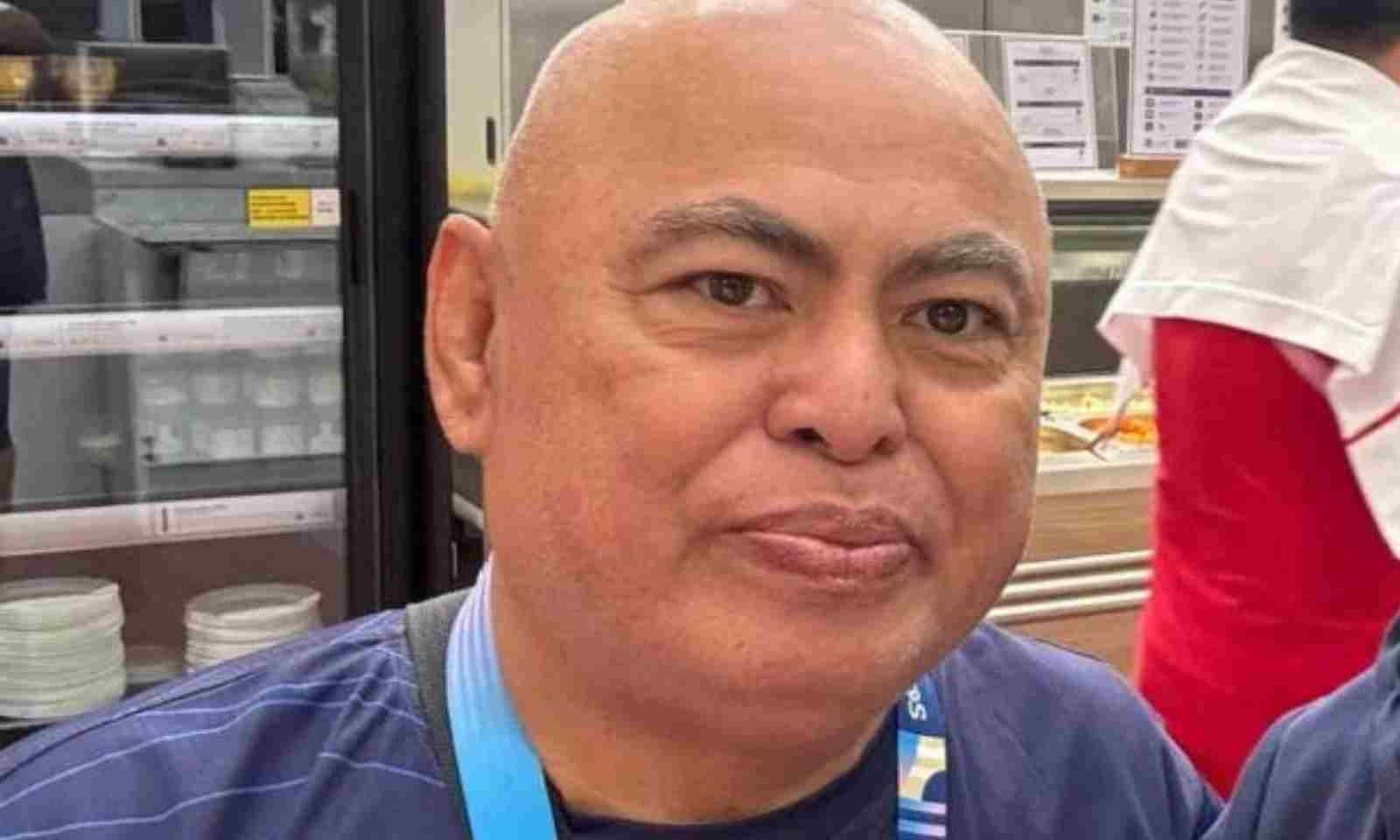

The Fijian men's rugby sevens team win silver in Paris.
Photo/World Rugby
Beyond the Games - What the Olympics mean to Team Fiji
The Pacific has won one medal so far, thanks to the Fijian men's rugby sevens team. But it's not all about winning, says chef de mission Sale Sorovaki.




A.R.T sets new Pacific music pace with ‘First Thursday’ releases



Moana Pasifika end Lautoka curse to win 'Battle of the Pacific'


A.R.T sets new Pacific music pace with ‘First Thursday’ releases

Rugby in Fiji is second to God. Noqu Kalou, Noqu Vanua - My God, My land.
That should give you an understanding of how big the game is in the Pacific island nation.
The Fijians draw strength through faith, the Bible, and their belief in God. They believe that it is through this deeply-held Christian faith that they are united in victory.
At the Rugby World Cup in South Africa last year, the Flying Fijians' head of athletic performance, Naca Cawanibuka, told journalists that the team's strategy is based on "principles that are all in the Bible".
Fiji went on to create history, defeating the Australian Wallabies for the first time in more than 69 years.
Watch Team Fiji break into song at the Games Village in Paris.
Last week, the Fiji men's rugby sevens team won the silver medal at the Olympics, coming off second best against hosts France, 7-28.
The two-time Olympic champions - Rio in 2016 and Tokyo in 2020/21 - were denied a triple crown history by the dominant French in the final.
But it's not all about winning, Team Fiji chef de mission Sale Sorovaki says.
He told PMN Olympics correspondent James Nokise that while he would have wanted to see more medals from the Fijians, including a third Olympic 7s gold, he was grateful for the team's efforts and achievements across several sports.
Sorovaki, a former 15s rugby captain, said four pillars defined Fijian sport - honesty, discipline, consistency and enjoyment.
He said it was in line with the three values of the Olympics - excellence, respect, and friendship.
According to the IOC charter, these values constitute the foundation on which the Olympic movement builds its activities to promote sport, culture, and education to build a better world.
"The Olympic Games are the world’s most powerful symbol of unity in all our diversity, with the participation of teams from 206 National Olympic Committees and the IOC Refugee Olympic Team.
"They send a powerful message of diversity, inclusion, and non-discrimination as athletes from all races, religions, ethnicities, and cultures compete with each other and live together in harmony in the Olympic Village."
Most of Fiji's contingent to Paris, including the men's and women's sevens teams, arrived home on Monday to a hero's welcome.

Fiji men and women's rugby sevens teams are welcomed home by government officials in Suva on Monday. Photo/Team Fiji
Sorovaki, 54, told Nokise that for Fijians, it's God and country.
It's not only a Fijian thing. Daily devotions are also important to Sāmoa and Tonga camps. It has been part of their team culture since the three island nations started playing rugby decades ago.
And the Olympics is about the athletes, the Methodist lay preacher said.
"We can do our part in making sure that the athletes are comfortable, that includes being physically prepared, mentally prepared, and spiritually prepared.
"We don't want to force it upon them, but it's a matter of, okay, let's have a lotu [church service] on Sunday and everybody joins in including those from other countries.
"Most of them connect with this because it reminds them of their families.
"The whole Olympic family can get caught up with the magnitude of the event, but it does not take away that, the word of God remains.
"So in such a high-pressure environment, for an athlete, there's a space for faith to help keep people grounded.
"At the end of the day, we all believe in God and if we can provide the support in any way."

Team Fiji also mourned the loss of Sāmoan boxing coach Lionel Fatupaito Elika. Photo/supplied
Sorovaki said this show of unity and respect was evident in the outpouring of sorrow and support for Team Sāmoa who lost their boxing coach last week.
A sombre note struck the Games with the tragic passing of Lionel Fatupaito Elika, aged 60, at the Olympic Village, with reports attributing his death to natural causes, including cardiac arrest.
Sorovaki said Fiji mourned with their Sāmoan aiga in Paris who held a church service after Elika's death.
"They had just gone through one day over the death of the boxing coach and they asked me to do the sermon. I was honoured to do that.
"They had gone to see the late boxing coach yesterday and I think they're repatriating the body tomorrow. Even though Lionel has gone, we hope he has achieved all he wanted.
"It was an honour for me and I thank God for the opportunity to be able to assist in the way I did with team Sāmoa.
"Even though we are different teams we are all Oceania, we all come from the same ocean, and we are connected by the ocean. The least we could do was to offer our support to Team Sāmoa."
He said blending sport with culture and religion created a way of life based on joy, the value of a good example, and the respect for universal fundamental ethical principles.
The Paris Olympics end on 12 August. Find the official medal tally here.
PMN's Olympics coverage is proudly brought to you by the Pasifika Medical Association Group.
Watch Team Fiji chef de mission Sale Sorovaki's full interview with PMN's Olympics correspondent in Paris, James Nokise.